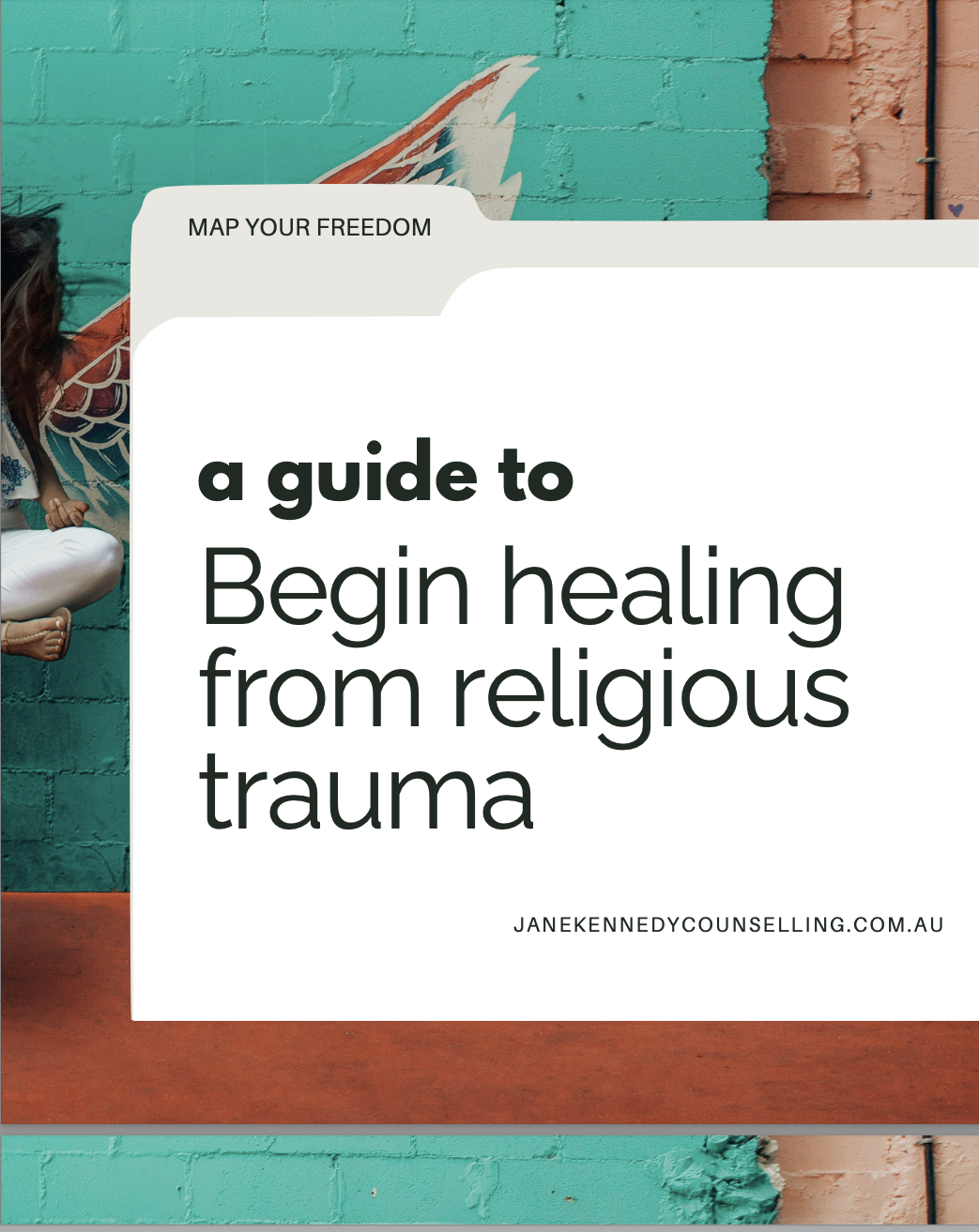Rejection Sensitive Dysphoria (RSD), sometimes described simply as rejection sensitivity, is often misunderstood as “overreacting,” “being too emotional,” or “taking things personally.” But for many trauma survivors, especially those emerging from high-control or spiritually abusive environments, RSD is a trauma-shaped nervous system responding to perceived danger.
Religious trauma often forms in environments where belonging is conditional, identity is regulated, and love is intertwined with compliance. When rejection becomes a tool of spiritual formation, the body learns to brace for abandonment long before the mind can name what’s happening.
Where RSD takes root in religious environments
Many high-demand religious systems create the perfect storm for rejection sensitivity to embed itself deeply. This can include:
1. Conditional belonging
Messages like “you’re welcome here as long as you remain pure, obedient, aligned, submissive, repentant” teach the body that love can disappear at any moment. Your nervous system learns to scan constantly for micro-shifts in approval.
2. Punishment disguised as discipline
Spiritual leaders may frame relational withdrawal, public correction, or “loving confrontation” as care for your soul. The body experiences it as threat, humiliation, or abandonment.
3. Fear-based cosmology
Teachings that cast doubt on your inherent goodness (“your heart is deceitful,” “your body is sinful,” “your desires are dangerous”) rupture the trust you might otherwise have in your inner world. When your inner compass is invalidated, you outsource your sense of safety to authority figures.
4. Community surveillance
Gossip disguised as accountability, confession rituals, modesty codes, or purity culture reinforce the idea that your acceptance depends on performance. Every mistake becomes a risk.
5. High stakes rejection
Leaving or questioning the community can result in isolation, shunning, loss of identity, or family estrangement. The body internalises rejection as catastrophic—a survival threat.
How RSD manifests in survivors of religious trauma
When your spiritual formation has primed your body to expect rejection, you may experience:
- Hypervigilance around others’ moods or tone
- Panic when feeling misunderstood
- Flooding at mild feedback or difference
- Shame spirals after small mistakes
- People-pleasing or fawning to prevent relational loss
- Explosive emotional pain when you sense withdrawal or disapproval
- Difficulty trusting your perceptions
- Fear of being “too much” or “not enough”
To the outside world, this can look like inconsistency or oversensitivity. Internally, it feels like the threat of exile.
RSD isn’t drama. It’s a trauma-body trying to keep you alive.
The impact on identity
Religious trauma often fractures the self through messages that reduce your worth to obedience. When RSD develops in this context, the self becomes organised around not being rejected rather than being authentic.
This can result in:
- An unstable sense of identity
- Difficulty naming your needs
- Shame whenever you assert boundaries
- Dependence on external validation
- Chronic anxiety in relationships
- Perfectionism as self-protection
RSD becomes an echo of the old environment—your body reacts as if the spiritual community still holds power over your survival.
But your body can learn a new story. I love working with people to learn this new story.
If you’d like to connect with me in counselling, you can get in touch here.
Warmly,
Jane



